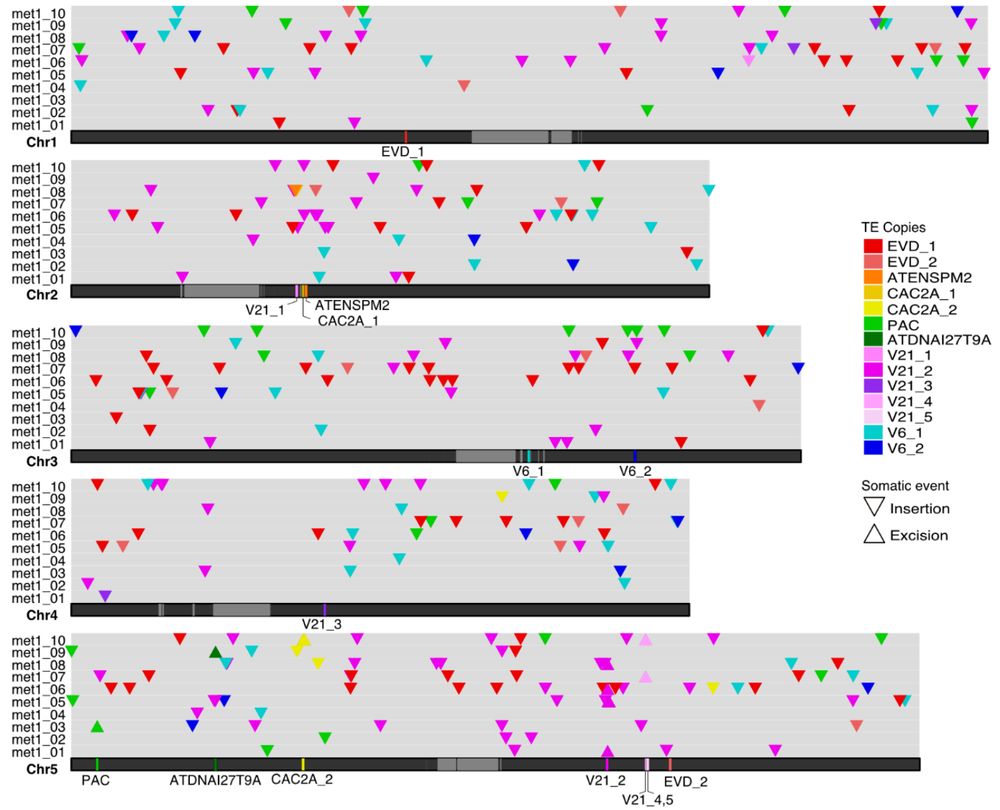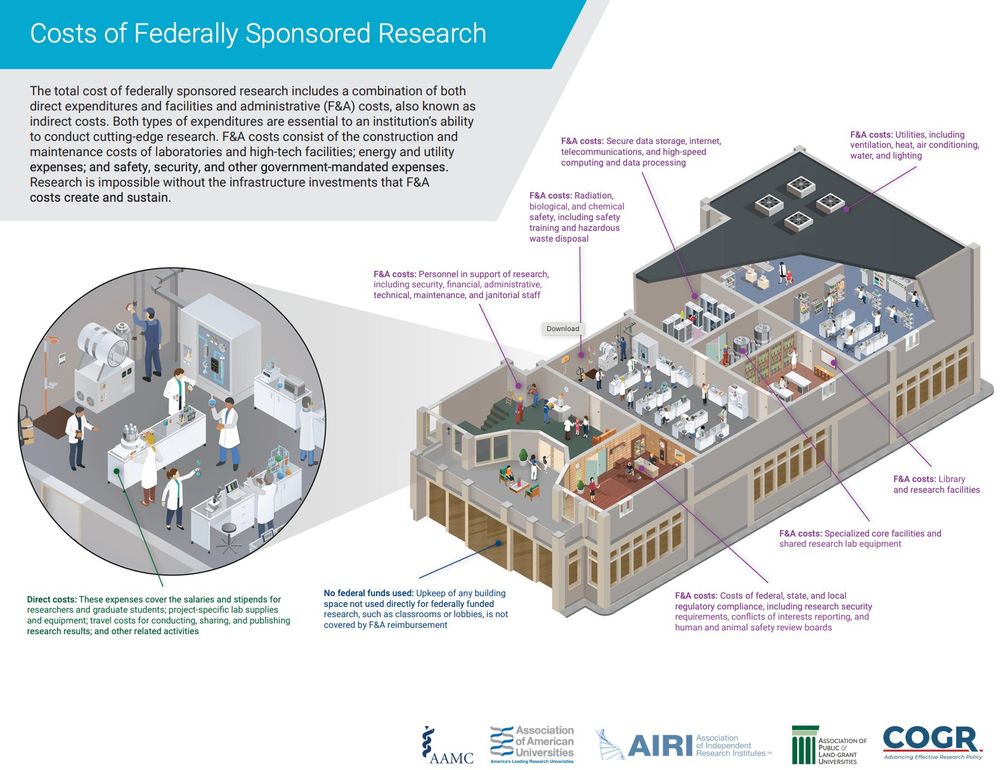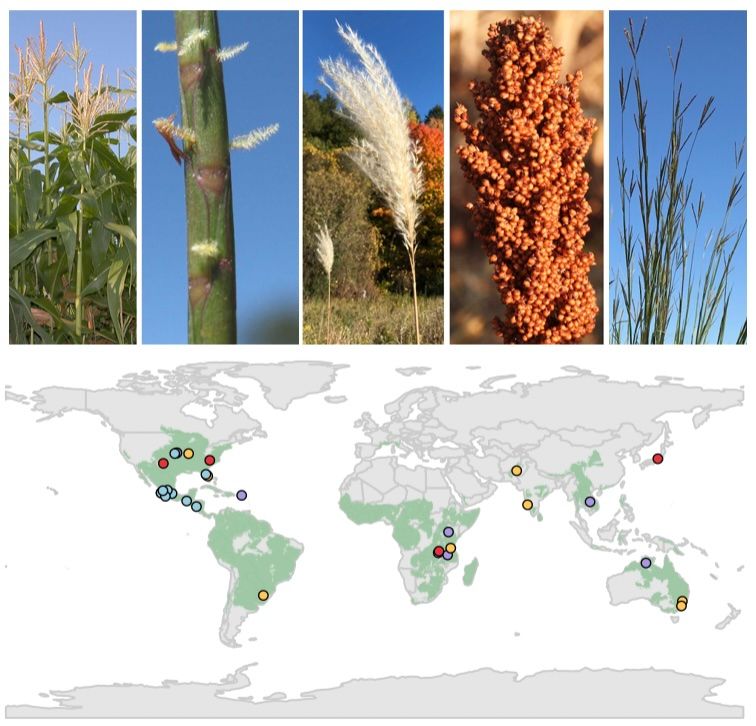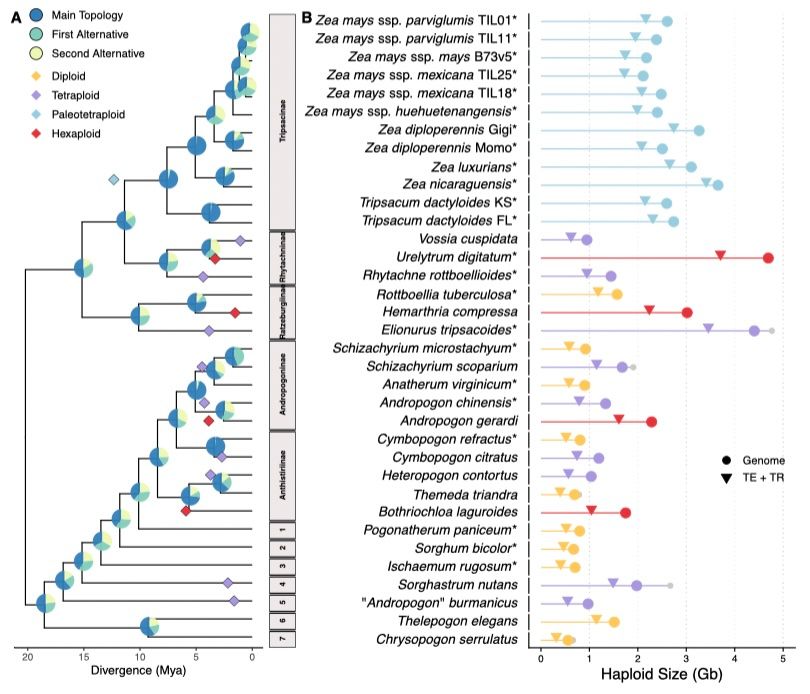Can’t say I’ve ever been “delighted”
07.08.2025 14:53 — 👍 2 🔁 0 💬 0 📌 0Matt Hufford
@mbhufford.bsky.social
Evolutionary Genomicist, EEOB Dept., Iowa State University, evolution of maize and its wild relatives
@mbhufford.bsky.social
Evolutionary Genomicist, EEOB Dept., Iowa State University, evolution of maize and its wild relatives
Can’t say I’ve ever been “delighted”
07.08.2025 14:53 — 👍 2 🔁 0 💬 0 📌 0Congrats!
14.07.2025 23:30 — 👍 1 🔁 0 💬 0 📌 0Eligibility extends to students receiving honorable mentions over the last three years. We will also be actively mentoring students in this Fall's GRFP competition. Reach out if interested, and I can provide details of participating faculty and the application process
14.07.2025 19:07 — 👍 5 🔁 0 💬 0 📌 0Exciting news from NSF today! Our proposal to host an EPSCoR Graduate Training Program at ISU in the biological sciences has been funded. Students receiving an honorable mention in the GRFP competition are eligible. We have a diverse set of faculty participating across the breadth of biology.
14.07.2025 19:07 — 👍 27 🔁 7 💬 1 📌 2Yep...have heard this directly from program officers. BI activities are good to do, but they want them not focused on any particular protected group (i.e., open to all)
14.07.2025 15:30 — 👍 3 🔁 0 💬 1 📌 0According to the posted lists for this year, only 1,000 applicants received the GRFP and ~ 3,000 were named honorable mentions. The solicitation stated there would be 2,300 awards, so this is a massive cut. 🧪🔭
08.04.2025 04:07 — 👍 33 🔁 12 💬 0 📌 0🚨 Not a drill: NSF GRFP results are NOW OUT!!!!!
But...good news and bad news.
👍 I'm *thrilled* for the grad students for whom getting this award will be life-changing, esp now.
👎 # of fellowships went down by 51%
(1000 this year vs. 2036 last year)
See here: www.research.gov/grfp/Awardee...

Diagram of somatic TE insertions across the A. thaliana genome
In our latest @biorxiv-genomic.bsky.social preprint, we describe our approach to use PacBio HiFi reads to detect somatic TE transposition -- good enough to detect rare events that are present in only single cells. Led by Andrea Movilli.
#plantscience
www.biorxiv.org/content/10.1...
😱 Who shows up in 2025 unannounced?
10.02.2025 19:14 — 👍 1 🔁 0 💬 1 📌 0
Many people, including academics, don't understand what F&A is for. Please share to help.
1) Translate to "overhead" in common business accounting:
60% IDC => 60/160 = 37.5% overhead (low!)
2) Infographic explaining what it's for, linked here:
www.cogr.edu/sites/defaul...

1:00 PM: Sustaining Inclusion Work in Challenging Political & Legal Environments Registration type: Basic, Deluxe In this session, we will offer several different perspectives about the current environment, looking back on historical context, examining the legal context of what we can do, and, by exploring the research, looking at the impacts of current challenges on climate and culture. A moderated discussion will explore how to leverage these contexts and perspectives to sustain the work of inclusion by focusing on transforming our institutional structures and systems.
Is anyone going to the AAAS meeting in Boston in February?
I would love a recap of this panel discussion! (Or even better, livestream? Would that be possible AAAS?
"Sustaining Inclusion Work in Challenging Political & Legal Environments"
Second this! Many societies are grappling with this now and would benefit from hearing or reading about this discussion.
30.01.2025 15:46 — 👍 1 🔁 0 💬 0 📌 0
On top, five Andropogoneae grass species, from left to right Zea mays subsp. mays, Hemarthria uncinata, Miscanthus sinensis, Sorghum bicolor, Andropogon gerardi. On bottom, a map of the world, with collection sites of Andropogoneae grasses in points. A green background shows the distribution of Andropogoneae grasses throughout tropical and temperate latitudes

On left, a phylogeny of Andropogoneae species, with 14 independent polyploidy origins noted. On right, genome size and repeat content of each assembly. Across all assemblies, average assembly size is 1.9 Gb, and average repeat size is 1.5 Gb.
New preprint featuring my favorite maize-relatives, the Andropogoneae! We sequenced the genomes of 27 species, including lemongrass, kangaroo grass, little and big bluestem, and more -- key species that shape grasslands and prairies worldwide. www.biorxiv.org/content/10.1...
27.01.2025 21:33 — 👍 51 🔁 30 💬 1 📌 0I totally forgot that in addition to the radical genomics, Michelle put together a website where you can learn about the biology of all the species we looked worked with: mcstitzer.github.io/panand_assem...
27.01.2025 05:58 — 👍 29 🔁 12 💬 0 📌 0The latest preprint from the PanAnd project, led by @mcstitzer.bsky.social is out today. We look at genome evolution in the Andropogoneae tribe of grasses. Interesting to see how processes occurring in #maize after #polyploidy may not be a general phenomenon.
www.biorxiv.org/content/10.1...

New preprint from @sjsnodgrass.bsky.social and our colleagues showing variable fractionation in Zea and Tripsacum post-polyploidy. We welcome your thoughts as we work toward submission to a journal.
www.biorxiv.org/content/10.1...
First day of class at ISU! As the campus bustles with activity, I'm reminded that a college education is a dream come true and something that students and their families have worked and saved for for years. Hoping to live up to their expectations as I teach this semester!
26.08.2024 16:58 — 👍 4 🔁 0 💬 1 📌 0Thanks, Jeff! It’s been so much fun!
01.08.2024 10:15 — 👍 1 🔁 0 💬 0 📌 0
My group is recruiting a bioinformatician for genomic studies in maize. The position includes work on diverse projects and collaborations with the Maize Genetics and Genomics Database, the CERCA project, and others in the Hufford Lab.
isu.wd1.myworkdayjobs.com/IowaStateJob...
Thanks, Jeff! We’re not old, we’re distinguished! Have enjoyed these last nearly 15 years working with you!
27.04.2024 16:08 — 👍 3 🔁 0 💬 2 📌 0I am hiring a postdoc to work on evolutionary genomics projects with maize and its wild relatives. This is part of a broad collaborative project known as CERCA that aims to improve maize with adaptations from the wild. Please share or consider applying!
isu.wd1.myworkdayjobs.com/IowaStateJob...
The Zeavolution webinar on maize evolution will have it's first 2024 meeting tomorrow at 10am CST. Mohamed El Walid
(Buckler Lab at Cornell) will get us started! DM me if you need to be added to the Zeavolution Slack, need connection details, or would like to speak in the series!


Lovely holiday party with the lab last night, with Yogi the pug also getting into the spirit. So fortunate to work with these brilliant, fun people!
15.12.2023 14:58 — 👍 5 🔁 0 💬 1 📌 0
Great question: teosinte (wild relative of maize) at high elevation has pigmented and hairy stems, teosinte at low elevation is green and glabrous. From Lauter et al. 2004 (academic.oup.com/genetics/art...)
10.12.2023 18:15 — 👍 4 🔁 1 💬 0 📌 0
I've been searching for the breakpoints of this adaptive chromosomal inversion for 15 years. We have now finally found those breakpoints and have discovered that the inversion contains an even older large inversion. This and more in this new preprint. www.biorxiv.org/content/10.1...
08.12.2023 21:41 — 👍 37 🔁 15 💬 6 📌 0Neat to see this update on the story, David. Just used your original study as an empirical example in my evolutionary genetics class.
08.12.2023 21:55 — 👍 1 🔁 0 💬 0 📌 0Inaugural Bluesky post (👋 Everyone!): The Ecology, Evolution, and Organismal Biology Dept. at Iowa State U. (my dept!) is conducting an open search at the rank of Professor for a new Dept. Chair!
isu.wd1.myworkdayjobs.com/en-US/IowaSt...